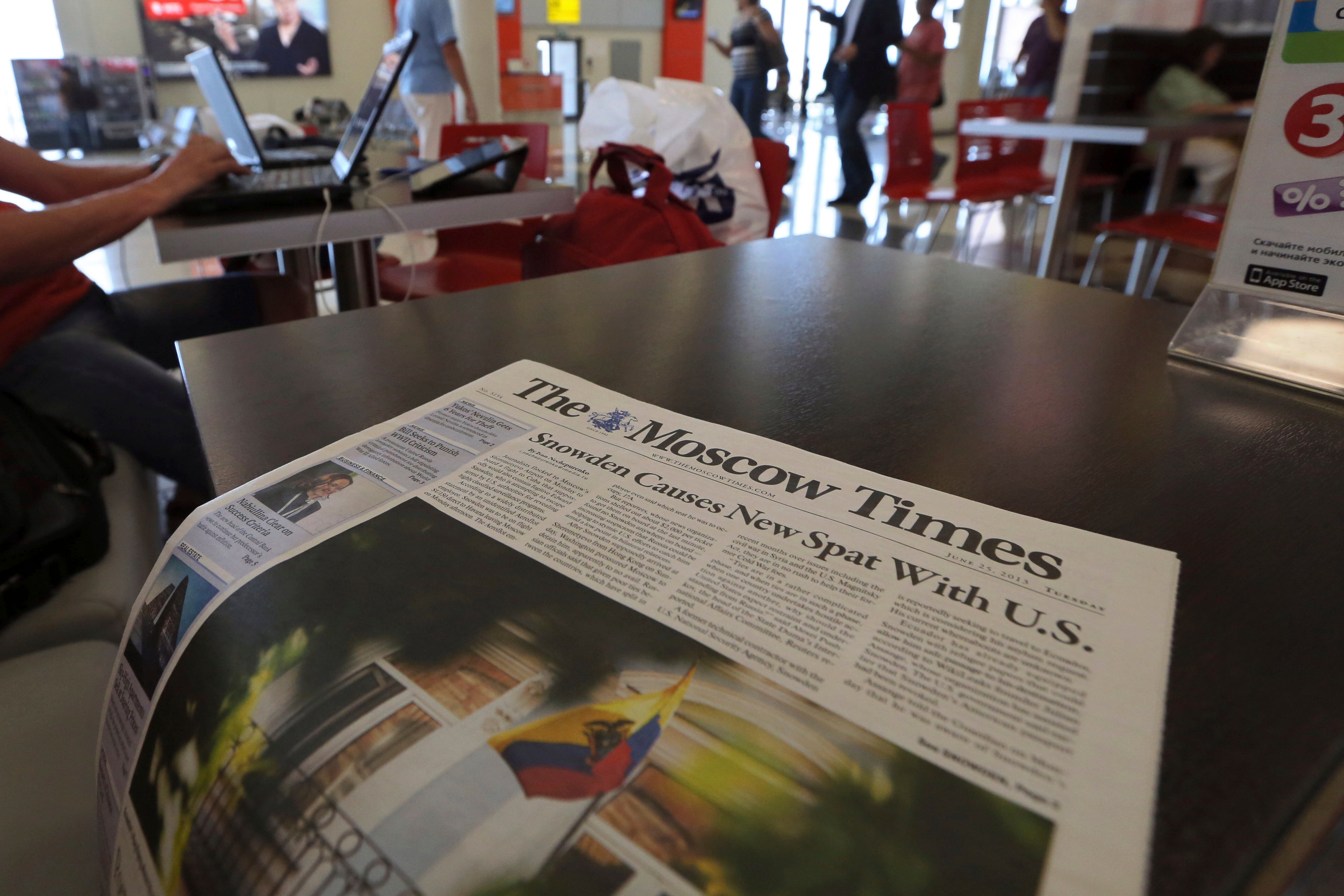The Moscow Times, noted for its English coverage of Russia, is declared a 'foreign agent'
Russia’s Justice Ministry has added The Moscow Times, an online newspaper popular among Russia’s expatriate community, to its list of “foreign agents” in the country’s continuing crackdown on critical news media and opposition

Your support helps us to tell the story
From reproductive rights to climate change to Big Tech, The Independent is on the ground when the story is developing. Whether it's investigating the financials of Elon Musk's pro-Trump PAC or producing our latest documentary, 'The A Word', which shines a light on the American women fighting for reproductive rights, we know how important it is to parse out the facts from the messaging.
At such a critical moment in US history, we need reporters on the ground. Your donation allows us to keep sending journalists to speak to both sides of the story.
The Independent is trusted by Americans across the entire political spectrum. And unlike many other quality news outlets, we choose not to lock Americans out of our reporting and analysis with paywalls. We believe quality journalism should be available to everyone, paid for by those who can afford it.
Your support makes all the difference.Russia's Justice Ministry on Friday added The Moscow Times, an online newspaper popular among Russia's expatriate community, to its list of “foreign agents” in the country's continuing crackdown on critical news media and opposition.
The “foreign agent” designation subjects individuals and organizations to increased financial scrutiny and requires any of their public material to prominently include notice of being declared a foreign agent. The label is seen as a pejorative aimed at undermining the designees' credibility.
It was not immediately clear how the move would affect The Moscow Times, which moved its editorial operations out of Russia in 2022 after the passage of a law imposing stiff penalties for material regarded as discrediting the Russian military and its war in Ukraine.
The Moscow Times publishes in English and in Russian, but its Russian-language site was blocked in Russia several months after the Ukraine war began.
The publication began in 1992 as a daily print paper distributed for free in restaurants, hotels and other locations popular with expatriates, whose presence in Moscow was soaring after the collapse of the Soviet Union. It later reduced its print edition to weekly, then became online-only in 2017.
Russia in recent years has methodically targeted people and organizations critical of the Kremlin, branding many as “foreign agents” and some as “undesirable” under a 2015 law that makes membership in such organizations a criminal offense.
Dmitry Muratov, the Nobel Peace Prize-winning editor of the independent newspaper Novaya Gazeta, was declared a foreign agent in September. The paper earlier had suspended operations in Russia.
Russia also has imprisoned prominent opposition figures including anti-corruption campaigner Alexei Navalny, who is President Vladimir Putin’s most persistent domestic foe, and dissidents Vladimir Kara-Murza and Ilya Yashin.